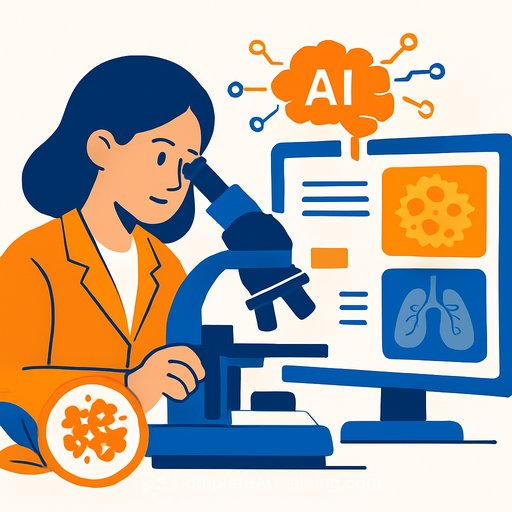MIGHT: A New AI Algorithm Enhancing Reliability in Medical Diagnostics
Researchers from Johns Hopkins Kimmel Cancer Center, Ludwig Center, and the Johns Hopkins Whiting School of Engineering have introduced a novel AI method called MIGHT (Multidimensional Informed Generalized Hypothesis Testing). This approach substantially improves the reliability and accuracy of AI tools, especially in clinical decision-making contexts like early cancer detection from blood samples (liquid biopsy).
What is MIGHT and How Does It Work?
MIGHT was developed to meet the high standards of confidence required in medical diagnostics. It fine-tunes itself using real data, validating accuracy through tens of thousands of decision trees applied to different data subsets. This makes it especially suited for biomedical datasets characterized by many variables but limited patient samples—a scenario where traditional AI models often struggle.
In practical testing, MIGHT was applied to blood samples from 1,000 individuals, including 352 patients with advanced cancers and 648 cancer-free controls. Researchers evaluated 44 distinct biological feature sets, such as DNA fragment lengths and chromosomal abnormalities. Features related to aneuploidy (abnormal chromosome numbers) showed the best cancer detection performance, achieving 72% sensitivity and 98% specificity. This balance is crucial to reduce false positives in clinical settings.
Expanding MIGHT with CoMIGHT
The team extended MIGHT with a companion algorithm named CoMIGHT, designed to assess whether combining multiple variable sets could enhance cancer detection. Applied to early-stage breast and pancreatic cancer samples, CoMIGHT demonstrated higher detection rates for pancreatic cancer but suggested that combining multiple biological signals could improve early breast cancer detection. This highlights the potential to customize detection strategies according to cancer type.
Addressing False Positives from Inflammation
A companion study revealed that ccfDNA fragmentation patterns previously thought to be cancer-specific also appear in autoimmune and vascular diseases like lupus, systemic sclerosis, dermatomyositis, and venous thromboembolism. These fragmentation signatures correlate with elevated inflammatory biomarkers across these conditions.
To tackle the challenge of inflammation-induced false positives, researchers incorporated inflammation-related data into MIGHT’s training set. This enhancement lowered, but did not completely eliminate, false positives from non-cancerous diseases. The findings emphasize the importance of understanding biological mechanisms behind biomarkers to avoid misdiagnosis. Interestingly, this work opens avenues to develop separate diagnostic tests for inflammatory diseases using reworked versions of MIGHT.
Challenges for AI Integration in Clinical Practice
An editorial accompanying these studies identified eight major barriers to fully incorporating AI tools like MIGHT into routine clinical care:
- Unrealistic expectations for flawless AI tools before adoption
- The necessity of presenting probabilistic results rather than binary decisions
- Ensuring AI predictions accurately reflect real-world probabilities
- Reproducibility of AI results across different datasets
- Training models on diverse populations to avoid bias
- Providing clear explanations of AI decision-making processes
- Recognizing how test accuracy can vary with disease prevalence
- Avoiding over-reliance on AI-generated recommendations
Broader Applications and Future Directions
MIGHT’s ability to measure uncertainty and provide reliable, reproducible results extends beyond medicine. It has potential in various scientific fields—from astronomy to zoology—where complex data and limited samples are common.
Researchers emphasize that AI outputs should complement, not replace, clinical judgment. While MIGHT and CoMIGHT show promise in cancer and inflammatory disease detection, further clinical trials and validation are essential before clinical adoption.
According to Dr. Bert Vogelstein, co-director of the Ludwig Center and study leader, “Trust in the result is essential, and with MIGHT, researchers can now focus on expanding patient studies and adding statistically meaningful features for earlier cancer detection.”
Access to MIGHT and Collaborative Efforts
MIGHT and CoMIGHT are publicly available at treeple.ai. This work is a collaborative effort involving researchers from Johns Hopkins and Vietnam, with critical clinical data and insights provided by teams led by Lan Ho-Pham and Tuan Nguyen.
For those interested in advancing AI skills in similar fields, comprehensive AI training resources are available at Complete AI Training.
Your membership also unlocks:





